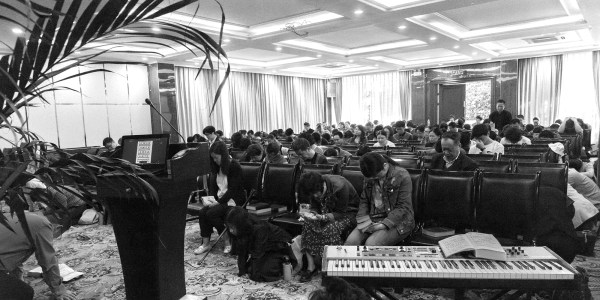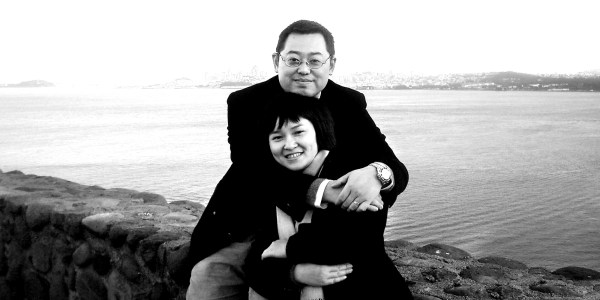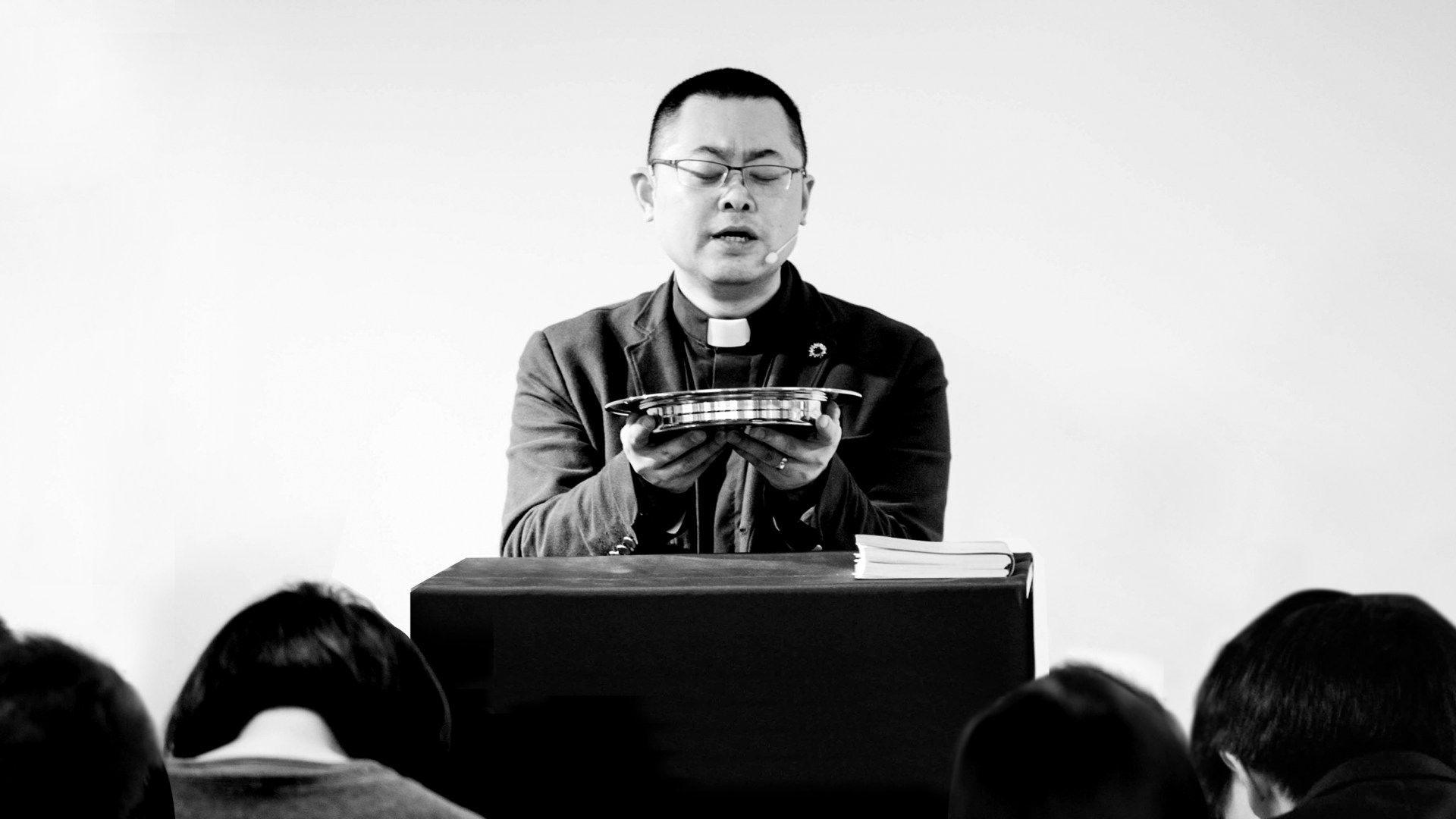When I first met Wang Yi, he ushered me into a conference room overlooking a landscape of old and slightly run-down office buildings in central Chengdu, western China’s most important metropolis. It was 2011, and his church was then called Early Rain Reformed Church, later taking the name Early Rain Covenant Church. Like many churches that weren’t registered with the government, it was housed in an office building. This one was fairly old, with one functioning elevator that groaned its way up to the 19th floor. I had taken one look and walked up.
Faithful Disobedience: Writings on Church and State from a Chinese House Church Movement
InterVarsity Press
288 pages
$23.17
I explained that I was working on a book about the revival of religion in China. I had been to many rural churches in traditional Christian heartlands of China, such as the province of Henan, but felt that big, urban churches like his were becoming more important. Would he let me sit in on his services and talk to congregants?
Pastor Wang immediately agreed on two conditions: First, no photography in the church; and, second, if I wanted to quote anyone, I was welcome to do so but needed their permission. His reasoning was simple: Early Rain had nothing to hide. It was a public institution. All were welcome, and no one should be restricted in what they wrote. So if I wanted to visit his church that was my right. And if I wanted to write something, that was also my right as a free person. His restrictions were simply means to respect the privacy of those who attended, and to keep the service dignified.
At that point I had worked in China off and on since the mid-1980s. I knew that for me to visit his church regularly carried inherent risks. I asked him about the building security guards downstairs and whether they would report to the authorities that a foreigner was regularly entering the building and trudging up to the 19th floor.
“Yes,” he said. “But foreigners aren’t banned from attending church. We are an open organization. We have nothing to hide. Come and worship with us.”
We talked a bit further and I realized that compared to the many challenges that Early Rain faced, I was probably insignificant. And so I agreed to his conditions and began attending the church regularly, spending hundreds of hours in services, seminaries, prayer groups, and conversations with congregants, almost all of whom were happy to share their experiences.
That began what for me was an unusual religious experience. I was raised a Christian, in Canada, as an Anglican (Episcopal in the United States) and felt pretty comfortable going to church. But to me the beauty of the service largely resided in the music and the Shakespearean language of the King James Bible or the Book of Common Prayer. Most priests I had encountered didn’t really make convincing sermons, and church seemed little more than a worthy Sunday-morning ceremony that contained important lessons about living a good life.
 Courtesy of Timothy Lee
Courtesy of Timothy LeeSitting in on Wang Yi’s services was something else. His sermons were not homilies he squeezed into the service quickly so everyone could get to the parish hall for coffee and donuts. They were beautifully crafted, logically organized, educational experiences in Christianity. Mostly they were long. It was nothing for him to talk for half an hour and most sermons went on for 45 minutes. And yet they didn’t seem long. He didn’t present Christianity as an obligation or chore but an essential part of making sense of the society around us. At the time he was 38 years old and had only converted six years earlier, in 2005, and so he was on a journey too—learning the Bible and teaching it to us.
This isn’t a paean to Wang Yi. Like many leaders of unregistered churches in China, he was an autodidact, who had memorized the Bible but saw things in, at times, dogmatic ways. His views on women (they could not serve as presbyters, let alone be pastors) were also not mine. And he had knockdown-dragout battles with people with whom he disagreed, which didn’t seem like the most Christian approach to problem-solving. I think other congregants had similar concerns—some would roll their eyes at his battles or joke about his fiery temperament.
But for them, and me, attending Wang Yi’s church was a profound experience. Part of it was that people felt that they were participating in something completely clear and open—something they could participate in and help manage. This is a radical idea in China, where someone else, usually the Chinese Communist Party, is running one’s life.
Part of it also was his personal charisma, speaking skills, and sharp mind. His sermons were electrifying, not in the sense of rhetorical histrionics but because of the clear, insightful way he explained the Bible, so that it made sense to the daily life of someone living in China. He discussed real problems and related them back to this religion, which he didn’t see at all as “Western” or “foreign,” but a universal faith that just happened to have been founded in the part of the world that we today call the Middle East.
My book included other faiths practiced by ethnic Chinese or “Han” people in China, and so I also spent time with Buddhists, Daoists, and folk religious practitioners. These were also idealistic people who were trying to bring a moral structure to their followers. This goal remains important to many Chinese, who feel buffeted by the essentially amoral world that the Chinese Communist Party has erected since taking power in 1949. Many of these other religious leaders also had committed followers who found meaning and value in their spiritual messages.
But Wang Yi—and other unregistered Protestant churches—connected the most directly with their followers. They offered the most help and advice, and were best-organized, often setting up schools, seminaries, and youth groups. This helps explain why Protestant Christianity was widely regarded as China’s fastest-growing religion until a crackdown began in the 2010s.
Wang Yi was clear-eyed about these risks. He knew that he could be arrested at any time, but he refused to be drawn into the culture of secrecy that the Chinese Communist Party cultivated. This is why he rejected the term underground church. His was simply a church and had the same right to exist as the official churches. It was unregistered because it chose to be unregistered. I found this logic compelling and in my writing prefer the term unregistered because it is more accurate than “underground” churches, which often are not underground, or “house” churches, which imply small groups of a dozen or so people. Rather, these were churches that leased office space, ran kindergartens, seminaries, and even bookstores. They were what political scientists called “civil society”—groups that exist outside of government control.
Not all faiths around the world face these same problems. Some are fortunate to exist in open societies that allow freedom of religion. Others are state-sanctioned religions that enjoy the blessings, but also the obligations, of state support. But to some degree all people of faith have to decide how to interact with authorities. Wang Yi and the other leaders of China’s unregistered churches thought deeply about this and tried to fashion answers through statements and manifestos, many of which are documented in this book.
These essays can be seen as specific to China but are also reflections of a remarkable explosion of faith that is taking place in many countries. In China, faith was long banned but is now on the upsurge, perplexing authorities. Some faiths have been co-opted, especially Buddhism and China’s indigenous religion, Taoism, which enjoy state support but also tight state control. Others face outright repression, such as Islam, against which the government has engaged in a brutal campaign of control, especially in the western region of Xinjiang. Still others, such as Catholicism, have been part of delicate negotiations over how bishops are ordained. As for Protestants, the government’s aim has been to force all churches into the state-controlled organization. Those that refuse, like Wang Yi’s, face destruction or at least a radical reduction in size.
Many of these battles inside China have global repercussions. China is now the world’s largest Buddhist nation and tries to use it as a form of soft power in other Buddhist countries. Its suppression of Islam has met with international condemnation and caused partial boycotts of prestige events in China, such as the 2022 Winter Olympics. And its negotiations with the Vatican are closely followed by the roughly 1.2 billion Catholics around the world. Meanwhile, the crackdown on Protestantism has attracted widespread attention, in part due to social media.
Inside China, this campaign to control religion has been implemented through new laws. These do not protect religious freedom but curtail it. This reflects a broader point in China about the legal system. Ideally, laws should be above the whims of a ruler—rule of law. But in China and many other countries, the law is a tool of oppression—rule by law. It is this kind of state-controlled legal system that for the past decade has taken aim at China’s unregistered churches and resulted in Wang Yi’s arrest in 2018. Some saw in the crackdown against Wang Yi and his church as something specific, arguing that he was too outspoken. But these criticisms miss the point that the state is nervous about all religions and that all would eventually be targeted, which is what has come to pass.
 Courtesy of Timothy Lee
Courtesy of Timothy LeeAll of these risks were clear to Wang Yi when I met him a decade ago. He often wrote about the potential for arrest and how to behave in the face of an oppressive state. But his conclusion was to follow a course of radical openness. He had his sermons recorded and a library of them made available to anyone who visited: worshipers or police. People at Early Rain didn’t come furtively through the back door but dressed in their Sunday best and wore name tags. They were proud of attending his church and did so openly. This was their church, a small island of self-determination in a sea of state control, led by an energetic idealist.
“There is a risk of being so public,” he told me that morning. “But I feel that the bigger risk is being underground. We won’t have a free attitude if we don’t act free. A basic attitude of being a Christian is to be free. But you can’t act free if you think you’re a criminal. So we try to walk the path of being open.”
Wang Yi walked that path in good faith until it became impassable. Now that he is in jail, I think of something else that he once wrote recounting one of his conversations with his wife, Jiang Rong, about what to do if he is arrested. This is what he said:
I am still a missionary, and you are still a minister’s wife. The gospel was our life yesterday and it will be our life tomorrow. This is because the one who called us is the God of yesterday and the God of tomorrow.
Ian Johnson is a Pulitzer-winning author and journalist and a senior fellow for Chinese studies at the Council on Foreign Relations.















